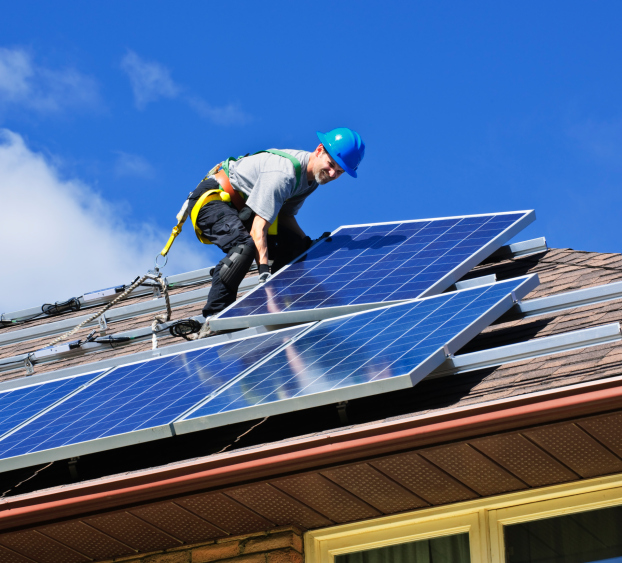On Tuesday, the California Public Utilities Commission (CPUC) recommended a major change in the rates state residents pay for electricity. The commission’s proposal is a “meaningful positive” for solar installers and “moderate positive” for solar panel makers, according to analysts at Credit Suisse.
Solar installers SolarCity Corp. (NASDAQ: SCTY) and Vivint Solar Inc. (NYSE: VSLR) benefit according to the analysts, because the CPUC is reducing the number of rate tiers from four to two and is expanding the addressable market with jeopardizing the existing customer base.
Of the solar panel makers, Credit Suisse mentions SunEdison Inc. (NYSE: SUNE) and SunPower Corp. (NASDAQ: SPWR) specifically noting growing exposure to the rooftop market.
The analyst wrote:
The proposal recommends flattening residential rate tiers to two with a 1.2:1 ratio, expanding the addressable market for rooftop solar as the lowest tier for all three utilities would now fall above the current flat lease/PPA solar pricing of $0.15/kwhr offered by VSLR/SCTY. The proposal also suggests imposing a $10/month minimum bill instead of a fixed charge during the 4-year transition period, which we view as a positive given that most customers have a bill > $10/month and will not be penalized. While details can change following the 30-day comment period (vote ~5/21), we view the proposed decision as a meaningful positive as the value proposition appears to be protected for existing solar customers while also increasing the set of customers in California where rooftop solar is economic. Let the good times roll.
The proposed rates through 2019 are all greater than either SolarCity’s or Vivint’s pricing today of $0.15 per kilowatt-hour (kWh), with savings varying from 23% to 48% on 2018 retail rates. Credit Suisse estimates that California currently has 1,900 megawatts of residential solar, representing only 2.6% of customers. Tier compression is expected to push more households into the higher-rate tier making solar more economic for more Californians.
ALSO READ: Massive Solar Installations in China Could Drive 4 Solar Stocks Much Higher
One effect of the proposed change is that proposed rates and bills will increase for those customers who use less electricity and decrease for those who use more. A Sierra Club spokesman said:
[The proposed change] might as well have been written on utility stationery. It jacks up bills for low income customers, lets energy hogs off the hook, and will slow the transition to clean energy. Meeting our climate goals just got harder.
SolarCity shares traded higher Thursday morning, up about 1% at $59.68, in a 52-week range of $45.79 to $79.40.
Vivint traded up about 0.4% to $14.39, in a post-IPO range of $7.42 to 18.71.
The Average American Is Losing Their Savings Every Day (Sponsor)
If you’re like many Americans and keep your money ‘safe’ in a checking or savings account, think again. The average yield on a savings account is a paltry .4% today, and inflation is much higher. Checking accounts are even worse.
Every day you don’t move to a high-yield savings account that beats inflation, you lose more and more value.
But there is good news. To win qualified customers, some accounts are paying 9-10x this national average. That’s an incredible way to keep your money safe, and get paid at the same time. Our top pick for high yield savings accounts includes other one time cash bonuses, and is FDIC insured.
Click here to see how much more you could be earning on your savings today. It takes just a few minutes and your money could be working for you.
Thank you for reading! Have some feedback for us?
Contact the 24/7 Wall St. editorial team.



